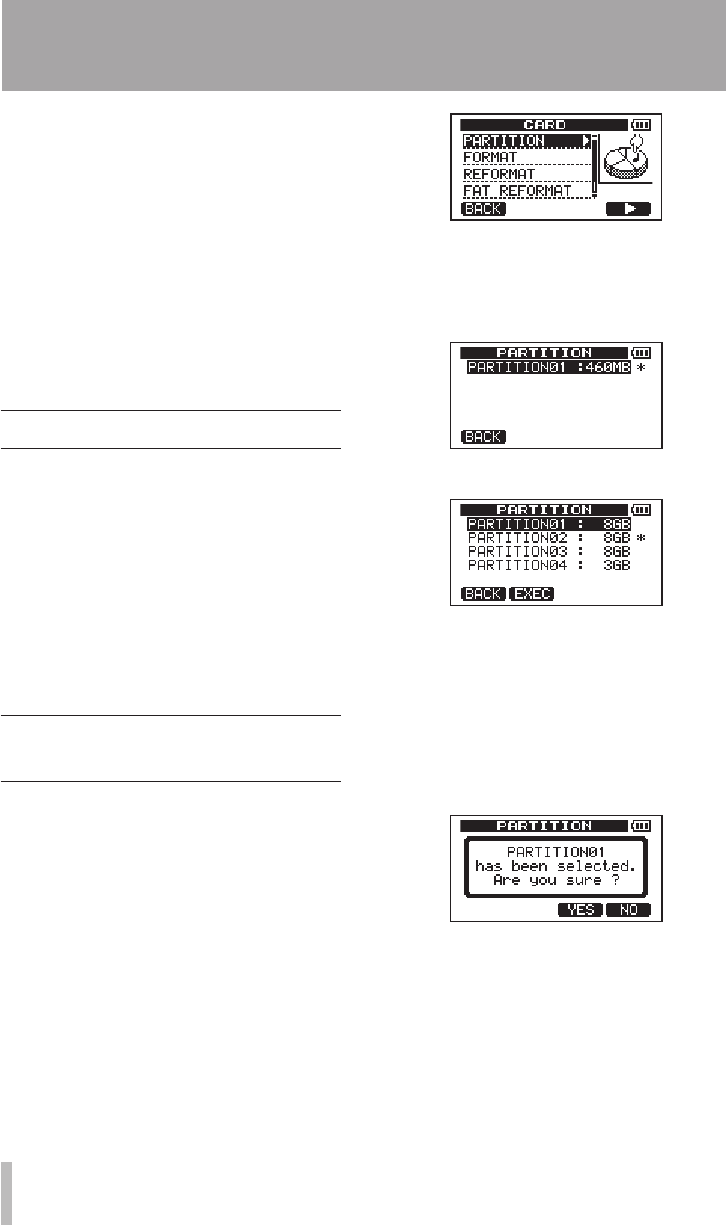
36 TASCAM DP-008
This unit manages data in song les.
Ordinarily, every song is given its own le.
The rst step is to load the song that you want
to manage (load an existing song or create a
new song).
In a song, the audio data for the recorded
multitrack (TRACK 1–8) and stereo master
track that have been created are saved.
This chapter, starts with an explanation of
SD card partitions, and then covers basic
operations, including procedures for loading
songs and creating new song, as well as
various song management functions.
Partitions and songs
This unit uses SD cards to record songs.
SD cards formatted by the unit are divided
into partitions. “MTR partitions” are for the
recording of data and “FAT partitions” can be
read by a personal computer. SD cards with
high capacities are formatted with multiple
MTR partitions.
When you want to record, playback or edit a
song, select an MTR partition to make it the
active partition and load a song on it or create
a new song.
Selecting the active
partition
If you want to use a le that is on a partition
other than the currently active partition in
order to load an existing song or create a new
song on it, you must change the partition.
Follow these steps to select a partition on an
SD card that has multiple MTR partitions.
1 When the recorder is stopped, press the
MENU key to open the
MENU
screen.
2 Use the DATA wheel to select
CARD
and
press the F4 (¥) key to open the
CARD
menu screen.
3 Use the DATA wheel to select
PARTITION
and press the F4 (¥) key to open the
PARTITION
screen. The display shows the
MTR partition list.
[SD card with one partition]
[SD card with multiple partitions]
An asterisk (Ú) shows the active partition.
The sizes of the partitions are shown (not
available space).
4 Rotate the DATA wheel to select the
partition and press F2 (
EXEC
). A confir-
mation message appears.
5 Press F3 (
YES
) to select. The unit saves the
current song before changing partitions.
It then loads the last used song on that
partition.
5 – Song Management


















